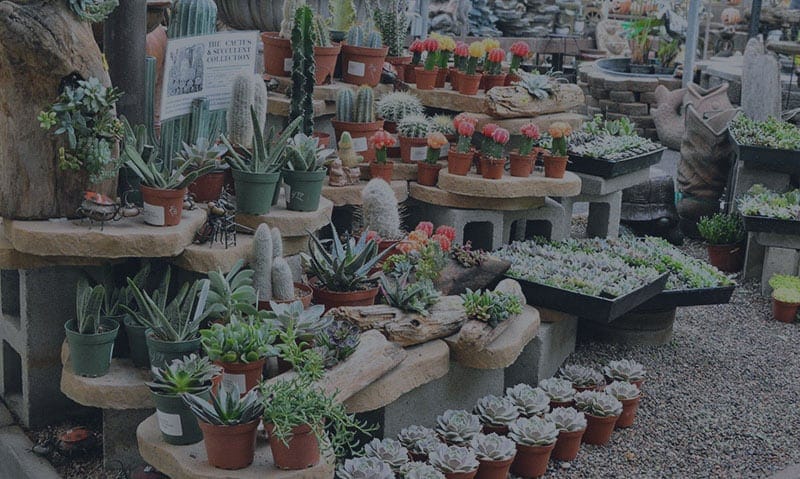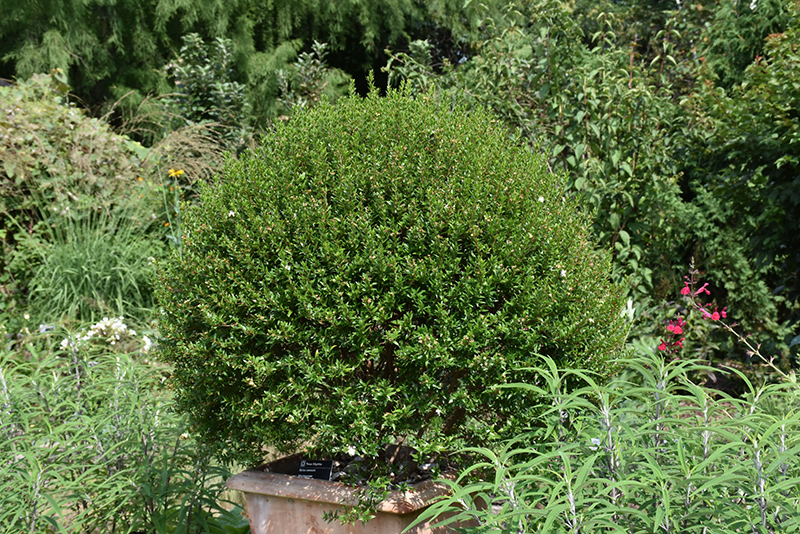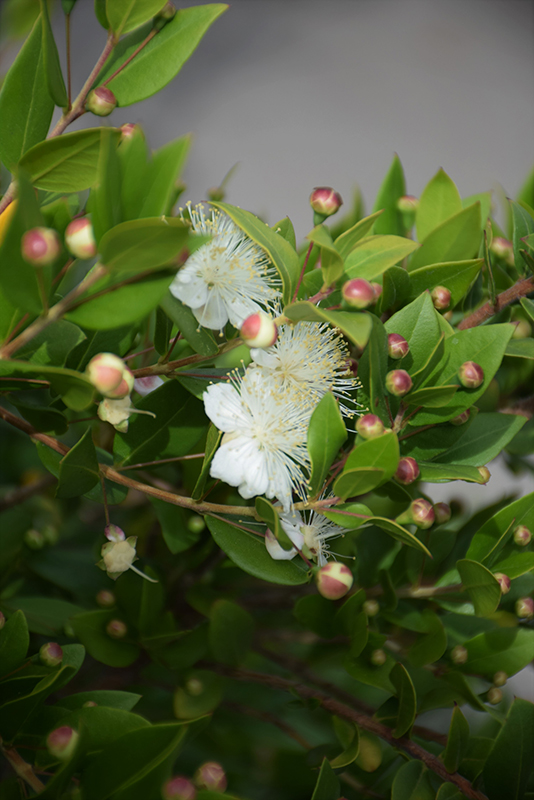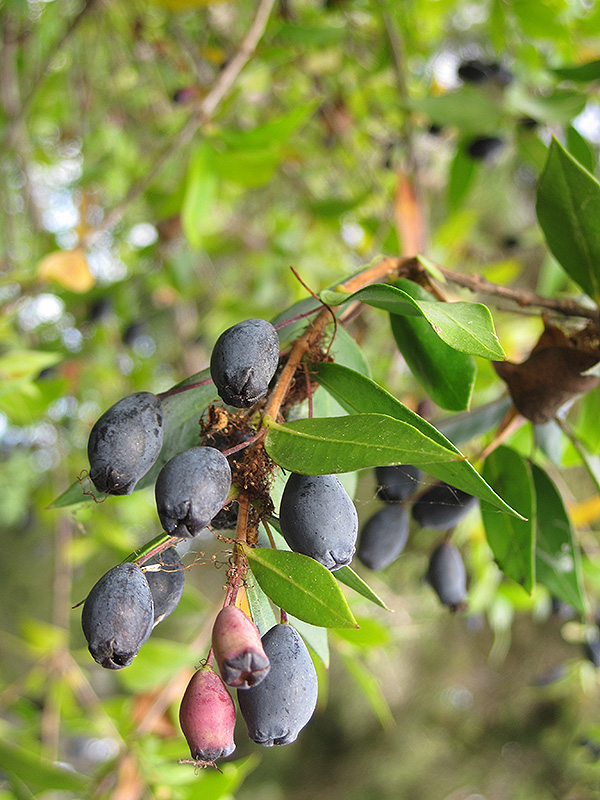Height: 15 feet
Spread: 10 feet
Sunlight:
![]()
![]()
Hardiness Zone: 8b
Other Names: Foxtail Myrtle
Description:
Creamy-white flowers cover this dense evergreen shrub in summer, followed by blue-black berries; pleasantly aromatic leaves; this attractive, dense shrub is easily sheared to any size or shape
Ornamental Features
Myrtle features showy fragrant creamy white star-shaped flowers along the branches in early summer. It has attractive dark green evergreen foliage. The fragrant pointy leaves are highly ornamental and remain dark green throughout the winter. It produces navy blue berries in late summer.
Landscape Attributes
Myrtle is a dense multi-stemmed evergreen shrub with a more or less rounded form. Its relatively fine texture sets it apart from other landscape plants with less refined foliage.
This is a relatively low maintenance shrub, and should only be pruned after flowering to avoid removing any of the current season's flowers. It is a good choice for attracting birds, bees and butterflies to your yard, but is not particularly attractive to deer who tend to leave it alone in favor of tastier treats. It has no significant negative characteristics.
Myrtle is recommended for the following landscape applications;
- Mass Planting
- Hedges/Screening
- General Garden Use
- Naturalizing And Woodland Gardens
- Topiary
Planting & Growing
Myrtle will grow to be about 15 feet tall at maturity, with a spread of 10 feet. It tends to fill out right to the ground and therefore doesn't necessarily require facer plants in front, and is suitable for planting under power lines. It grows at a slow rate, and under ideal conditions can be expected to live for approximately 10 years.
This shrub does best in full sun to partial shade. It does best in average to evenly moist conditions, but will not tolerate standing water. It may require supplemental watering during periods of drought or extended heat. It is not particular as to soil type or pH. It is somewhat tolerant of urban pollution. This species is not originally from North America.




